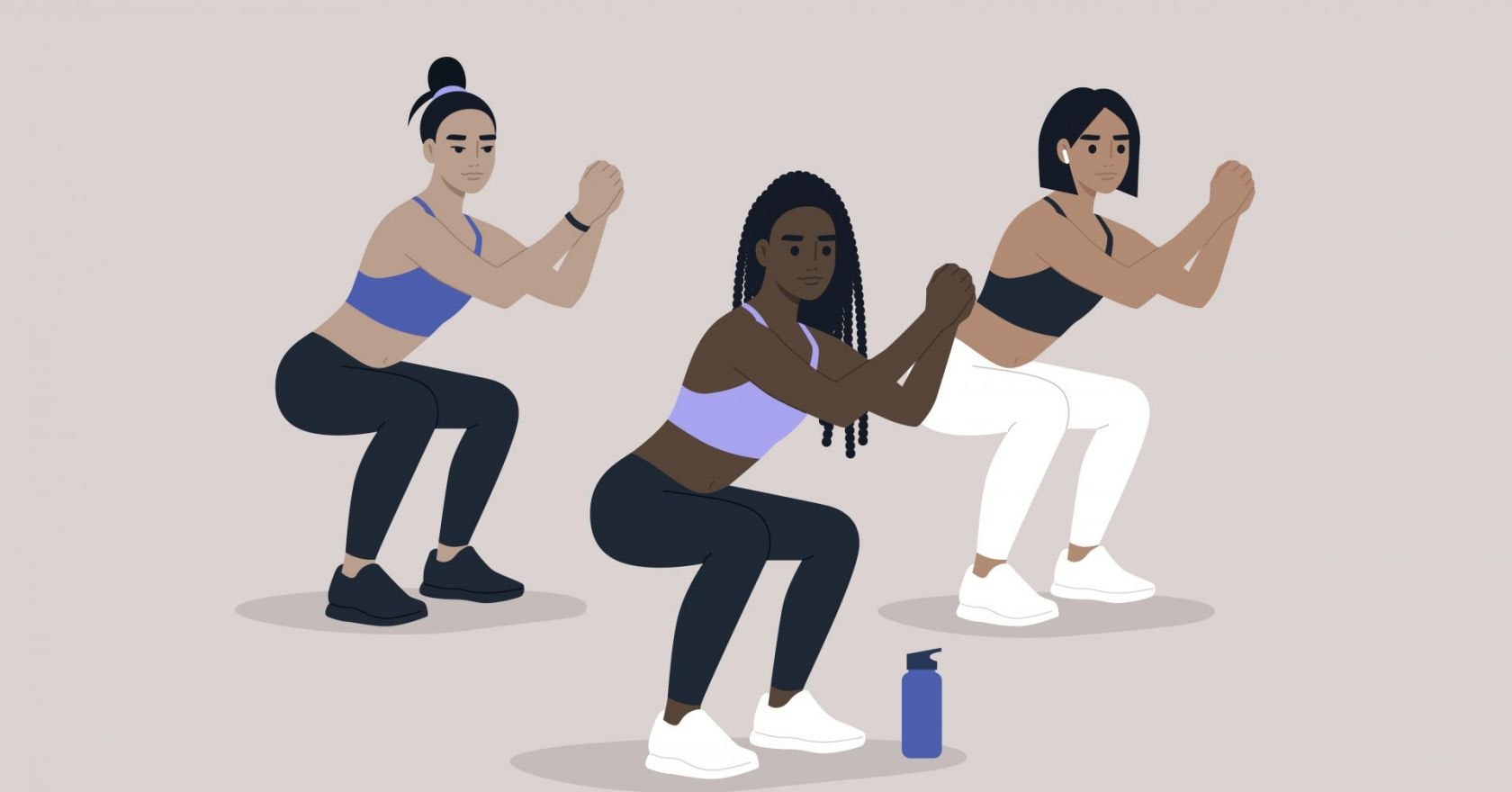
According to Dr Michael Mosley, the best way to boost brain health is to spend a few minutes every morning squatting and doing press-ups. So, can you really think clearer after just a few minutes of bodyweight action?
Most of us like our fitness regimes to be simple, fast and effective. And while there’s no fast track to better health or movement, we can be smart about the exercise we do and choose to do certain exercises every day that require minimal planning or equipment but promise sizable returns.
While the physical benefits of exercise are well known, we often overlook the long-lasting positive impact it can have on our brain health. And you really don’t have to do much to get that cerebral boost.
You may also like
Can ‘Minimum Effective Dose’ in training improve your workouts?
Dr Michael Mosely recently explained on his BBC podcast, Just One Thing, that he tries to do some kind of cardio every day for heart and lung health, but that the one thing he’d recommend we add to our daily routine would be strength training.
“There’s fascinating new research on the benefits of strength workouts; how a few minutes of daily resistance exercises – where you don’t need any special equipment – can boost your brain as well as your muscles,” he says. And the exercises he’d recommend? “The first is press-ups – one of the best low-cost ways of building upper body strength.
“The second form of resistance exercise I recommend you try doing on a regular basis is the squat. As we discovered, it is one of the best exercises around for improving your brain function in surprising ways.”
He tries to do both exercises in the morning when he first gets out of bed. “They give you a full-body workout, help your heart and may even boost your brainpower,” he claims.
Squats are an ‘intelligent’ way of moving
So, what is it about those basic bodyweight moves that could improve our brain function? A study published in the journal Frontiers In Neuroscience found that weight-bearing leg exercises like squats send neurological signals that are vital in producing new, healthy brain cells. Those cells can then improve your critical thinking and overall cognitive function.
On the Just One Thing episode, Dr Mosley’s guest – Damian Bailey, professor of physiology and biochemistry at the University of South Wales – calls squatting an ‘intelligent’ form of exercise because of the way it “intermittently challenges the brain with an increase of blood flow and a decrease of blood flow”.
As we lower and rise in a squat, we challenge the inner linings of our arteries to supply blood to the brain, and that then helps the brain to recognise the helpful chemicals it needs to grow.
That blood supply is important also because our hippocampus – the bit of the brain responsible for learning and memory – tends to shrink as we get older. As it does so, it gets less blood supply; when we do things like squatting and pressing, however, more blood gets sent to the hippocampus. And that happens specifically in those compound resistance moves rather than activities like walking.
To reap the biggest brain benefits, Dr Bailey recommends squatting for a minimum of three minutes, three times a week. Let’s face it, we all have nine minutes a week.
Press ups – when done with concentration – can flood us with feel-good hormones
As for press ups, Dr Mosley says he does 40 a day. Now, most of us would struggle to do that (and remember, men do have different physical capacities than women), but working on getting up to being able to do a few full-body press ups is going to boost your overall physical wellbeing (a 2019 study found that people who can do more press ups are up to 96% less likely to experience a cardiovascular problem than those who can barely do a handful over a 10-year period).
Total body exercises like press ups tend to flood us with endorphins (stress busters) by recruiting lots of different muscles to fire at the same time. Our heart rate rises in response, flooding the system with oxygen, and that increase releases our endorphins. Because it’s easy to lose form as you fatigue, they also require quite a lot of attention and focus – unlike, say, cardio exercises which can be done almost on autopilot. The more we practise being focused, the more improved our mental focus becomes.
So, if you are busy and want to do some brain training, all you need is about 20 minutes a week to do your press ups and squats. Try doing five minutes, four mornings a week and see if it has any noticeable impact on your energy, focus and mood.
For more quick workout ideas, visit the Strong Women Training Club.
Images: Getty
Source: Read Full Article